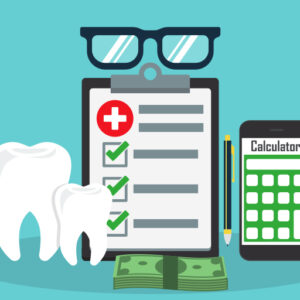Navigating the world of health insurance can often feel overwhelming. With numerous plans available, each offering different coverage levels and prices, it’s essential to make informed choices. This blog aims to simplify your decision-making process by providing a detailed Health Insurance Comparison: Plans and Prices. Understanding the nuances of various policies will help you select a plan that not only fits your budget but also meets your health needs.
Main Points
- Overview of different health insurance plans available in the market.
- Factors to consider when comparing prices and coverage options.
- Tips for selecting the best plan for your individual health needs.
Understanding Different Types of Health Insurance Plans: A Comprehensive Guide
When navigating the labyrinth of health insurance, it’s crucial to grasp the various types available. Each plan offers distinct features and benefits, ultimately influencing your healthcare experience. It can feel overwhelming, but understanding the basics will empower your decision-making. Here’s a concise overview:
- Health Maintenance Organization (HMO): Requires members to see in-network doctors and obtain referrals for specialists.
- PPO (Preferred Provider Organization): Offers more flexibility with healthcare providers, allowing out-of-network care at higher costs.
- Exclusive Provider Organization (EPO): Similar to PPOs but does not cover any out-of-network care.
Each plan has its pros and cons. This makes it essential to evaluate your personal health needs and financial situation before selecting a coverage option. Tailoring your choice based on these elements can greatly impact your overall satisfaction with the plan.
Key Factors to Consider When Comparing Health Insurance Prices
When evaluating health insurance prices, several critical factors demand your attention. First, assess the coverage offered; this includes hospital stays, outpatient care, and preventive services. Next, consider the deductibles and premiums, as these significantly affect your out-of-pocket expenses. It’s also vital to check the network of healthcare providers. Are your preferred doctors included? Lastly, examine any waiting periods or exclusions. All these elements collectively shape your insurance experience and financial burden.
Comparison Table
| Factor | Importance |
|---|---|
| Coverage | Essential |
| Deductibles | Crucial |
| Provider Network | Important |
How to Evaluate Health Insurance Coverage: What You Need to Know
When assessing health insurance coverage, begin by examining the premiums and deductibles. These figures essentially dictate your out-of-pocket costs. Then, consider the network of healthcare providers. Are your preferred doctors included? This can significantly impact your treatment options. Furthermore, investigate the scope of services covered; from routine check-ups to intricate surgeries, knowing what’s included is crucial. Lastly, remember to read the fine print and clarify any confusing terms with your insurer, as this can save you from unexpected expenses.
html
The Importance of Network Providers in Health Insurance Comparisons
When navigating the complex landscape of health insurance, understanding network providers becomes crucial. These entities determine which doctors and facilities a plan covers. Therefore, individuals must thoroughly compare plans based on their network availability. A limited network can restrict access to preferred healthcare services, leading to unexpected out-of-pocket costs. It’s essential to explore how different plans offer varying levels of access to specialists and hospitals.
Key Considerations
As you assess your options, keep in mind the following:
- Network Type: Whether it’s an HMO, PPO, or EPO, the type of network can greatly affect your healthcare choices.
- Provider Directory: Review the list of in-network doctors and facilities. A more extensive directory indicates better access.
- Referral Requirements: Some plans may require referrals for specialists, impacting your ability to seek care promptly.
Please remember, the right choices depend on personal healthcare needs and preferences. A thorough comparison can ultimately lead to more informed decisions.
Cost Comparison: Unveiling Hidden Fees in Health Insurance Plans
Understanding health insurance costs can feel like navigating a complex maze. Many individuals focus on monthly premiums, but it’s essential to dig deeper. Deductibles, copayments, and coinsurance can significantly affect out-of-pocket expenses. Often, consumers overlook these hidden fees, which can lead to financial surprises during unexpected medical emergencies. Moreover, evaluating plans based solely on initial costs may mislead you. Therefore, taking a closer look at the overall financial landscape becomes crucial, as it helps avoid potential pitfalls.
Why Awareness Matters
Knowledge isn’t just power; it plays a critical role in making informed decisions. By being aware of all fees involved, you empower yourself to choose the most suitable plan for your needs, enhancing both your peace of mind and financial stability.
Maximizing Benefits: Tips for Choosing the Right Health Insurance Plan
Navigating the world of health insurance can be overwhelmingly complex. Therefore, understanding your unique needs is crucial. Start by assessing factors like your medical history and potential future requirements. Next, compare different plans, focusing on essential elements such as premiums, coverage limits, and out-of-pocket costs. It’s tempting to go for the lowest price, but remember, value often lies in comprehensive coverage.
“The greatest wealth is health.” – Virgil
Finally, don’t hesitate to reach out to insurance advisors. They can clarify confusing terms and help you make an informed decision that truly supports your well-being.
| Plan Type | Premium | Deductible |
|---|---|---|
| HMO | $200 | $1,000 |
| PPO | $250 | $500 |
In conclusion, prioritizing the right plan requires a balance of cost and coverage, addressing your unique situation. Ultimately, making an informed choice can lead to significant improvements in your health journey.
html
Frequently Asked Questions About Health Insurance Comparisons: Expert Answers
When navigating the labyrinth of health insurance, many questions linger, creating potential confusion. Understanding comparisons can be particularly challenging. Here are some of the most common inquiries and clarifications to help demystify the process:
- What factors should I consider?: Look at premiums, coverage options, and deductibles to ensure a comprehensive evaluation.
- How do I compare plans effectively?: Use online tools, read customer reviews, and analyze the fine print to make informed choices.
- Are cheaper plans always better?: Not necessarily, as lower costs may come with limited coverage or higher out-of-pocket expenses.
Ultimately, a well-informed decision stems from careful comparison and understanding of what each plan offers.
Conclusion
In conclusion, navigating the world of health insurance can feel overwhelming, but it is essential for safeguarding your well-being. When you engage in a thorough Health Insurance Comparison: Plans and Prices, you empower yourself to make informed choices that best suit your needs. Everyone’s health requirements and financial situations are unique, so taking the time to evaluate different plans can save you stress and money in the long run. Remember, what works for someone else might not be the right fit for you. Therefore, trust your instincts and prioritize both quality coverage and affordability. As you move forward, keep in mind that the right health insurance can provide peace of mind and security. Don’t hesitate to seek advice and explore your options; after all, your health deserves the best protection possible.
Frequently Asked Questions
What factors should I consider when comparing health insurance plans?
When comparing health insurance plans, consider factors such as monthly premiums, deductibles, out-of-pocket maximums, copayments, coverage options, and the network of doctors and hospitals.
How can I find the best health insurance plan for my needs?
To find the best health insurance plan, assess your health needs, budget, and preferred healthcare providers. Use comparison websites, consult with insurance agents, and read reviews to evaluate your options.
Are lower premiums always a better choice?
Not necessarily. While lower premiums can save you money upfront, they may come with higher deductibles and out-of-pocket costs. Assess the total cost of care, including premiums and potential healthcare expenses.
What is a deductible and how does it affect my health insurance?
A deductible is the amount you must pay out-of-pocket for healthcare services before your insurance starts to pay. Higher deductibles typically mean lower premiums, but you’ll need to ensure you can afford the deductible if you require care.
Can I switch health insurance plans during the year?
Generally, you can switch plans during the open enrollment period or if you qualify for a special enrollment due to certain life events, such as marriage or job loss. It’s important to check the specific rules of your insurance provider.


